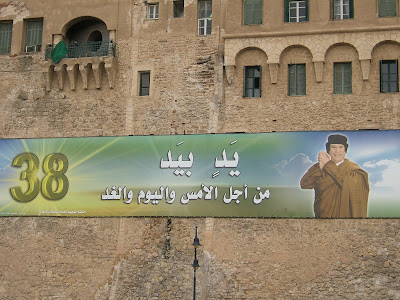
We arrived in our smart shirts and grinned inanely at everyone we met. The bureaucrat responsible for the application form did not raise his gaze from his newspaper at any point in our conversation, just barked at others who told us what to do. On completion of the forms we were sent from bureaucrat to bureaucrat all over the embassy, upstairs and down stairs. When we finally reached the bureaucrat with his own office and it was decreed that our visas would be ready on Sunday, just five days. It would be nice to think our Arabic 'hellos' swayed him.
23/01/08 - 24/01/08

Almost more interesting than the pyramids was our guide Wasim and beside his knowledge of Ancient Egypt, the frank and honest picture he painted of modern life in Egypt was fascinating. Ranging from politics, religion and relationships it was a true insight.
In the evening we met Adam a secondary school Arabic Teacher on the street. We shared karkaday (hibiscus tea) with him – sweet and pungent, fitting preconceptions of a dark, mysterious and opulent Arabia. Before wandering the streets with him shaking hands with everyone we met followed by a gaggle of children. He took us to an empty mosque and we sat below its grand chandelier on garden furniture and marveled at its design. We followed him round a small leather jacket workshop still working strong late into the evening. We did end up paying quite a large amount for some sweets it was suggested we give to Sudanese people by way of thanking them for things. This may well have been his pay off - something, according to a man from the British Council we met later, indicative of the Egyptian mentality. We took it in good humor and we left with his phone number and address should we ever need anything in Cairo, having had a memorable night.
25/01/08 – 26/01/08
The Coptic Christian region of the city was not treated with a great deal of reverence. The churches and mausoleums were clearly of great religious significance and there were worshippers who could read the Arabic language written with the Greek alphabet, kissing the icons and rocking back and forth but cackling cameramen and women took centre stage. We got there by hopping on the city's metro system and it had to be a fast hop because the doors remained open for an unreasonable length of time so everyone scrambled like mad. It is a very British trait to demand order in these kinds of situations as it is to get uppity when people invariably push in front in queues, but watching the back of the head of an individual who has deemed themselves more important than you is infuriating.
We spent time wandering the streets of Cairo, observing the chasm of inequality that plagues the city. Just a few kilometers separated the grand houses and the 5 star hotels from people living inside a cemetery.

For some sorely needed escapism we headed for the music of After Eight where a DJ played Stevie Wonder and James Brown. It was a night put on by a man from the British Council, chatting with him at the beautiful old mirror and wood bar, waited on hand and foot by men wearing bow ties, it was good to play the Colonial part for a night.
27/01/08
It was time to head back to the Sudanese Embassy to see if we had got our promised visas. It turned out not to have been a problem and from the date on the visa it looked like it had actually been completed the same day we first applied. We gave our condolences to the Russian cyclists who were still waiting after a week and headed off to get a train to Luxor in the south. This proved a lot harder than anticipated as it seemed there were not going to be tickets for a week. This was not for a lack of service, but due to the sheer volume of tourists plying the route. We admitted defeat and retreated to the hostel and let the hostel manager and his 'commission' take over, getting tickets through contacts and under the table. We expected delays in our trip but in post-colonial Cairo it was a bit of a surprise.






